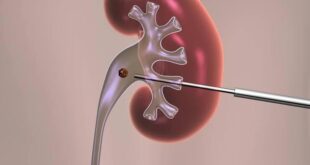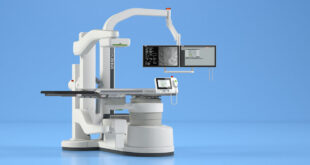Kidney stones are a common health problem that can cause severe pain and discomfort. The pain is often so severe that it prompts individuals to seek medical attention right away. However, once the kidney stones have been removed, the pain is usually relieved, and patients may assume that there is no need for further medical care. While most people can return to their daily activities within a few days to a week after kidney stone removal, some may still experience complications that require medical attention.
Kidney stones are usually treated with minimally invasive procedures such as shockwave lithotripsy, ureteroscopy, or percutaneous nephrolithotomy. Although these procedures are usually successful in removing kidney stones, there are potential complications that may arise. Possible complications include ureteral stent-related complications, infections, and bleeding. It is essential to be aware of the symptoms that may indicate a complication and seek medical attention
Don’t tough it out
So, you’ve finally had kidney stone removal surgery and you’re on the road to recovery. Congrats! Now you can focus on getting back to your normal routine, right? Not so fast. While most patients are able to resume their regular activities within a week or two of the procedure, it’s important to keep an eye out for any concerning symptoms. It’s no secret that kidney stones are painful, and the removal process can be just as excruciating. That’s why it’s crucial to know what signs to look for after surgery. If you’re wondering what is ureteroscopy, it’s a procedure in which a narrow tube with a camera attached is used to see inside the urinary tract and remove kidney stones. If you experience significant pain, fever, or blood in your urine in the days following the surgery, don’t tough it out. Seek medical attention immediately to ensure proper healing and prevent any further complications. Your health comes first!
When to say ‘ouch!’
After undergoing kidney stone removal, you may encounter several warning signs that might require seeking medical attention. It’s always essential to pay attention to your body, listen to what it’s telling you, and seek appropriate medical care. Don’t brush off any severe pain, fever, or other symptoms as something minor that’ll go away on its own. Knowing when to say Ouch! Could mean the difference between a smooth recovery and experiencing additional complications. If you’re unsure what to look out for, don’t fear.
Don’t be a hero
When it comes to kidney stone removal, sometimes it can feel like you’re in a battle: fighting the pain, fighting the urge to pee, and fighting to just get through the day. But there’s one thing you should never try to do: be a hero. It’s important to know when it’s time to seek medical attention after kidney stone removal. And if you’re wondering what is ureteroscopy, don’t wait to find out.
 Your GSP – Company Registration Process
Your GSP – Company Registration Process




